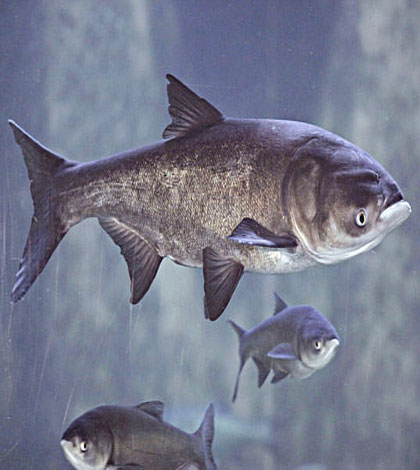New study links carp with sportfish drop in Mississippi River
MICHIGAN – A new study that shows the population of sport fish has dropped significantly in parts of the upper Mississippi River, which also claims a large population of Asian carp, is not good news for the Great Lakes fishery, says a representative of the Great Lakes Fishery Commission (GLFC), and fuels the calls for action to be taken to curb the potential risk of the fish spreading throughout the Great Lakes.
“I’m not surprised with the findings in the report. Our group and others have been saying for many years that action needs to be taken,” said Marc Gaden, chair of the GLFC, earlier this week. “This was a rigorous and academic study that proves the point we have been bringing forward over the past few decades. We have been telling politicians and policy makers that action needs to be taken. The study demonstrates what has been reported the past 20 years plus by people out there in contact with the resources (commercial and sport fisheries) that the ecosystem is changing and that there is a very real detriment ecologically and economically being caused by Asian carp.”
“This study verifies what we have been hearing for years and been communicating to policy makers and politicians,” said Mr. Gaden, who called the report “important stuff.”
The report carried out by lead author John Chick shows that sport fish have declined significantly in portions of the upper Mississippi River infested with Asian carp, adding evidence to fears about the invaders’ threat to native species. Analysis of nearly 20 years of population data suggest the carp are out-competing fish prized by anglers, such as yellow perch, bluegill, and black and white crappie, the report said.
Scientists have long suspected Asian carp of starving out other fish in the Mississippi and many of its tributaries, reported Great Lakes Now on November 20, 2019. It points out the peer-reviewed study this month in the journal Biological Invasions is among the first to establish a solid link, lead author John Chick said in an interview.
“The alarms have been out there for a long time now,” Mr. Chick, a fisheries biologist who directs a University of Illinois field station in Alton, Illinois, told Great Lakes Now. “This adds further mustard to the argument that we need to be taking these things seriously. The trends that have been established here are not the trends we want to see in other places.”
In the paper, it was reported that between 1994 and 2013, sport fish populations dropped about 30 percent in two carp infested areas on the Mississippi River and one on the Illinois River.
Meanwhile, sport fish numbers grew nearly 35 percent in three sections of the Mississippi farther upstream that the carp hadn’t reached.
The report found that sport fish are probably losing out during early life stages, when they’re dependent on the plankton the carp are devouring.
The researchers considered other factors including flooding, water temperatures and sediment pollution. But none was found to have played a significant role in the sport fish trends in the upper Mississippi, the report notes.
“Mr. Chick is a top notch researcher, so they brought out the A team to conduct this study,” said Mr. Gaden. “I think we have a document that really highlights the concerns we have been raising with politicians and policy makers with this report. And it provides to the (US Congress) more justification that action needs to be taken.”
The US Army Corps of Engineers (USACE) in May presented to Congress its recommended plan to stop Asian carp from entering the Great Lakes; a series of deterrents at the Brandon Road Lock and Dam on the Des Plaines River in Joliet, Illinois, about 35 miles west of Lake Michigan. The site would use sounds, bubble curtains, an electric barrier and a lock that flushes water back down river, as well as other features.
The early price tag on the project has risen to more than $830 million.
“The report gives us more reason to stress the need for an ultimate solution to separate the Great Lakes from the Mississippi River,” stated Mr. Gaden. “The Great Lakes can’t afford any new invasive species especially one as destructive as Asian carp.”





